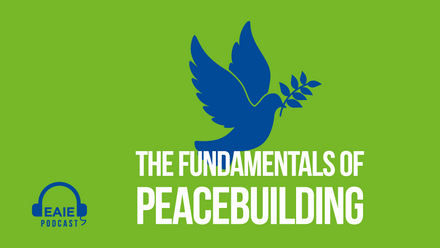How higher education institutions can respond to COVID-19

In light of COVID-19, colleges and universities around the world are taking various actions in order to secure the well-being of their students and staff, as well as members of their communities. The following is a compilation of recommendations based on courses of action that academic institutions have implemented around the world. While we understand that the reality of each institution is unique, we hope the following measures can provide some guidance during these times as we all continue to learn while the COVID-19 situation unfolds.
Communicate with your students on campus and support them
The first thing you should do is contact your domestic and international students – especially those students from the countries most affected by the virus – and ensure their well-being. Be supportive and empathetic, ask them how their families and friends are doing, and direct them to the appropriate support services that are available to them depending on their specific needs. For example, some students may not have access to funds due to the virus and may require financial assistance; others may be feeling distressed and anxious and require counselling and health services.
Communicate with your students abroad and support them
You should also contact all of your students that are abroad to monitor their well-being and inform yourself of any updates their host country is announcing. If you have students in countries affected, you should refer to your institution’s risk management office and contact your embassy at the host country for additional guidance. Some institutions have asked all their students to return immediately. The University of Nebraska at Kearney, for example, will assist any student that is currently abroad in an affected country if they would like to return home early.
Establish policies regarding study abroad programmes
For programmes that need to be cancelled, such as study abroad programmes in China or Italy, colleges and universities should be contacting their students to explain if the programme will be postponed to a later date or cancelled. Institutions will then be able to explain how to proceed with the refund process. Under the principle of force majeure, students should be refunded for all international programmes that had to be cancelled.
Health insurance coverage for all
For your students that are currently abroad, make sure that all of them have international medical insurance in the event that they need to access health services while they are abroad, as some insurance policies may not include coronavirus coverage. Likewise, you need to ensure that all international students at your institution, especially those that do not fit the regular exchange scheme (such as short-term visiting students) are insured, so that they can access local medical care in the event that the virus spreads out in your local community.
Establish policies regarding travel
While some institutions have banned all travel, others await to make a decision. If you are not sure if you should proceed with an official mission abroad or with a study abroad programme, we advise you to check your government’s travel advisories. For example, the Government of Canada’s comprehensive website with information regarding travel advice has urged all their citizens to not leave their country. The Canadian Government has also advised that entry to Canada is limited mostly to Canadian citizens and permanent residents, and that any person arriving from another country needs to self-isolate for 14 days to ensure they did not contract COVID-19.
If you have students coming back, make sure to follow up with them during their isolation to ensure that they are supported and connected with society. By following your government’s advisories, you are ensuring to receive the most up-to-date information that your country has received regarding the virus.
Establish support for financial funds
Academic institutions may have students and staff who are from a country affected by the virus. In this case, colleges and universities should be developing procedures to support them. For example, extending the research stay or exchange of visiting students and ensuring that the students have access to the necessary funds to cover those expenses. In the case that students do not have access to funds due to the virus, such as students having to return early from their exchange programme, institutions should be leveraging internal and external funds to relieve their students and staff from this financial grief. The Lake Washington Institute of Technology created the coronavirus student emergency fund to support students directly impacted by the virus.
Communicate with your partners
Get in contact with your partners affected by COVID-19 and show them your support. Let them know that you support them, and encourage them to continue to be resilient. The Chinese Consulate General in Calgary shared on its official Twitter account a heartfelt message of support by the University of Regina to the Chinese community.
Inform your community and break the stigma
There is a lot of misinformation regarding COVID-19. As academic institutions, we should be informing our campus community about the virus: What is it? What are the symptoms? How can we avoid and prevent it? Such information should be coming from reliable sources such as the World Health Organization. The University of Glasgow has hosted live broadcasts addressing concerns regarding COVID-19 and has developed a comprehensive website that includes information regarding frequently asked questions about support for students and staff, travel advice and self-isolation, as well as other relevant recommendations and guidelines.
Unfortunately, with fear and ignorance also comes racism. There have been instances of international students being attacked due to their percieved racial background, such as the case of student Jonathan Mok who was attacked in London. Make sure to provide the Supporting students affected by coronavirus by the virus. Hopefully by accurately informing your University community and the public about COVID-19, and by breaking the stigma around Asian students as relates to the virus, these types of crimes can be prevented.
What if we have to close our institution?
More than 200 colleges and universities in the United States have suspended classes or have moved them all online as a prevention to the spread of COVID-19. If your local community hasn’t been affected by the coronavirus, you might want to follow MIT’s lead and start planning alternative measures.
Some institutions are establishing the infrastructure needed so that they are able to move all their courses online should they need to prevent their students from group gatherings. They are also preparing business continuity plans for their administrative and academic staff so that they can work remotely.
Offering courses online or deferring the start of their programmes to a later term are two ways to support students affected by the coronavirus
For example, the University of Ottawa is continuing its operations while administrative staff work remotely and continuing with essential research with additional funding from government. Ottawa higher education institutions have moved towards an online and distance learning and teaching approach to ensure that students are able to complete the academic year, and the University of Ottawa is continuing to offer services to their international students by telephone and videoconference.
Establish the support needed for new students coming in the fall
With courses being cancelled and students not being able to travel or being subject to more rigid health immigration requirements, academic institutions should be implementing systems to accommodate all the students that will be affected. This is especially urgent, as a recent survey led by QS showed that more than 60% of respondents said that their plans to study abroad had not been affected by the virus. Offering courses online or deferring the start of their undergraduate or graduate programme to a later term are two ways to support students affected by the coronavirus.
When in doubt, try to be a leader
There might be multiple situations when you do not know how to proceed, what resources to allocate, or what type of policies and processes should your institution be implementing. The following are the set of principles of the University of Ottawa when making such decisions: the health and security of all; continuity of operations, programmes, and services; upholding academic standards; and flexibility in finding solutions.
Keep your community updated
Make sure you update your community on how the situation unfolds in light of COVID-19. Whether it is the suspension of classes, postponing non-crucial travel, or providing informative materials regarding the virus, make sure you provide this information to students and staff in a timely manner.






